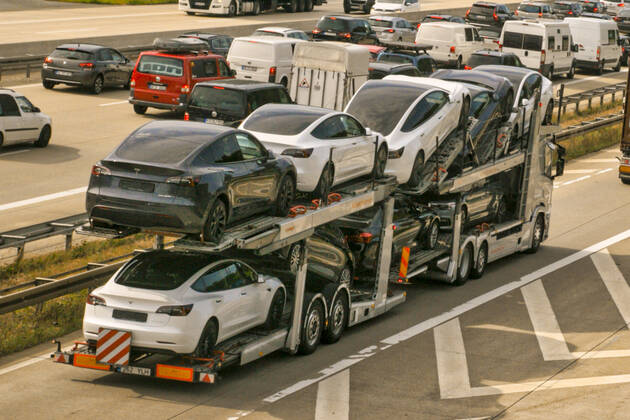In this article, we will explore how direct-to-consumer car brands such as Tesla, Rivian and Lucid deliver vehicles directly to customers without third-party dealerships.
We’ll look at different aspects of their delivery process including order placement, vehicle production, logistics and the final delivery experience.
Order Placement
Customers who want to purchase a vehicle from a direct-to-consumer brand can place an order online through the company’s website. On the order page, they select their desired vehicle model, trim level, exterior and interior color options and any added features or packages.
They also provide their contact and payment details. Most direct-to-consumer brands require a fully-refundable deposit, usually around $100-250, at the time of order.
Vehicle Production
After an order is placed, it enters the production queue. The customer receives periodic order status updates by email as their vehicle moves through the manufacturing process.
Most direct-to-consumer brands build vehicles on a made-to-order basis rather than keeping large inventories, so production times can vary depending on the current production schedule.
On average, it takes 4-12 months for an ordered vehicle to be manufactured once production begins.
Logistics Planning
| Weeks Before Delivery | Activity |
| 4-6 | Vehicle is scheduled for transport and final delivery route is planned |
| 2-3 | Customer receives a delivery window of 2-3 days and finalizes any trade-in plans |
| 1 | Delivery driver is assigned and customer receives exact delivery date |
Vehicle Delivery – Car Brands Deliver Vehicles to Customers
On the scheduled delivery date, the customer receives text updates from the delivery driver as they transport the vehicle. Drivers aim to deliver between 9am-5pm. They perform a vehicle walkthrough, activate any connected services, transfer vehicle titles and keys over to the new owner.
The delivery experience is optimized to be contactless amidst the COVID-19 pandemic with all documents digitally signed. Customers can also choose to pick up their vehicle from a delivery hub if they prefer.
Post-Delivery Support
Even after the vehicle is delivered, direct-to-consumer brands strive to provide a high level of customer service. Any issues encountered are addressed via the company’s mobile app, website or a phone call to customer support. Over-the-air software updates keep vehicles updated with new features.
Subscription plans are sometimes offered for connected services. Warranty repairs and maintenance can either be done at certified third party shops or through mobile technicians sent by the brand.
Car Brands Deliver Vehicles to Customers – Parting Words:
direct-to-consumer car brands employ a streamlined process for order placement, manufacturing, logistics planning and delivery to get vehicles into the hands of customers while optimizing their experiences. Their made-to-order model and tech-centric approach aims to redefine the traditional dealership sales process with increased transparency, convenience and personalization.

